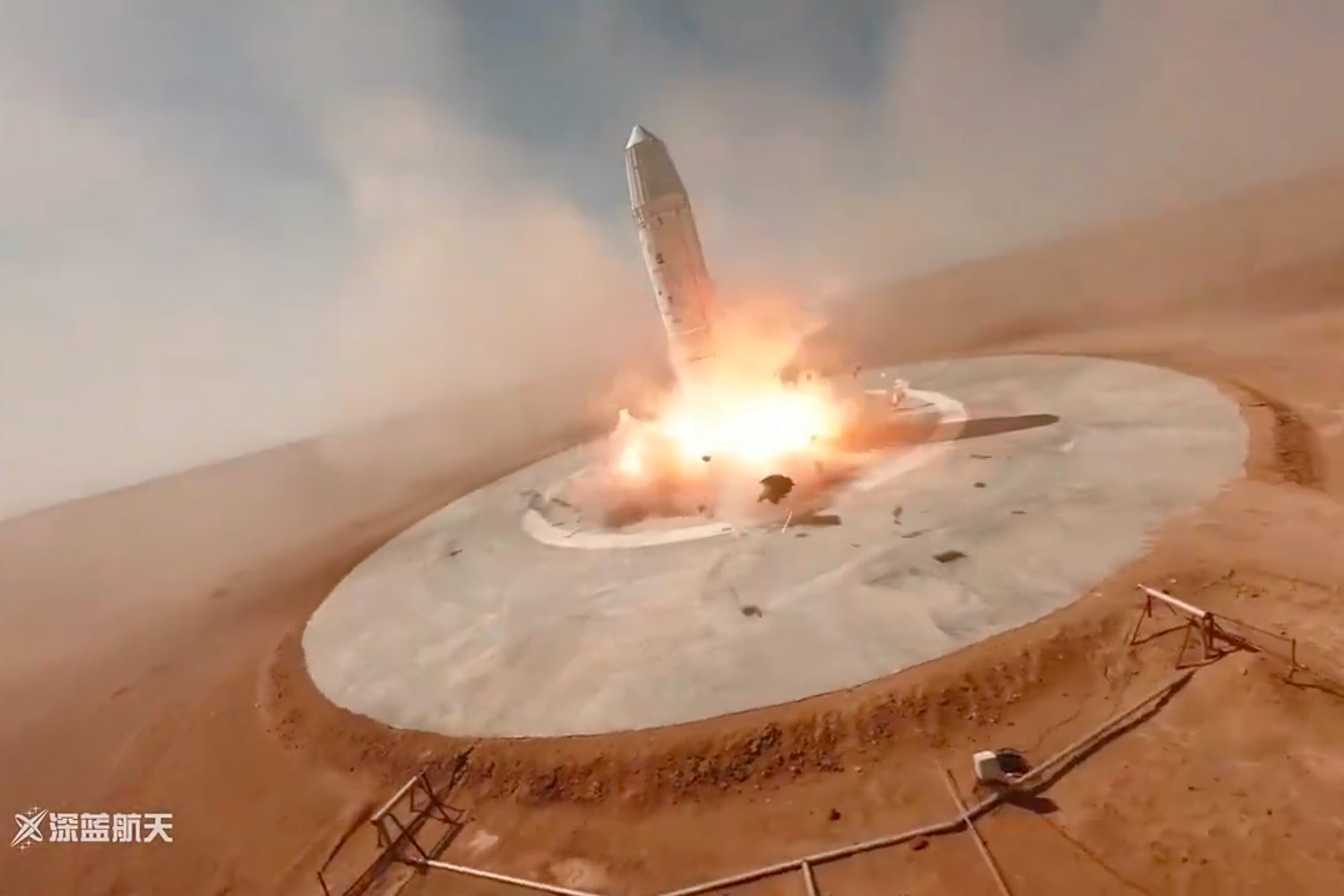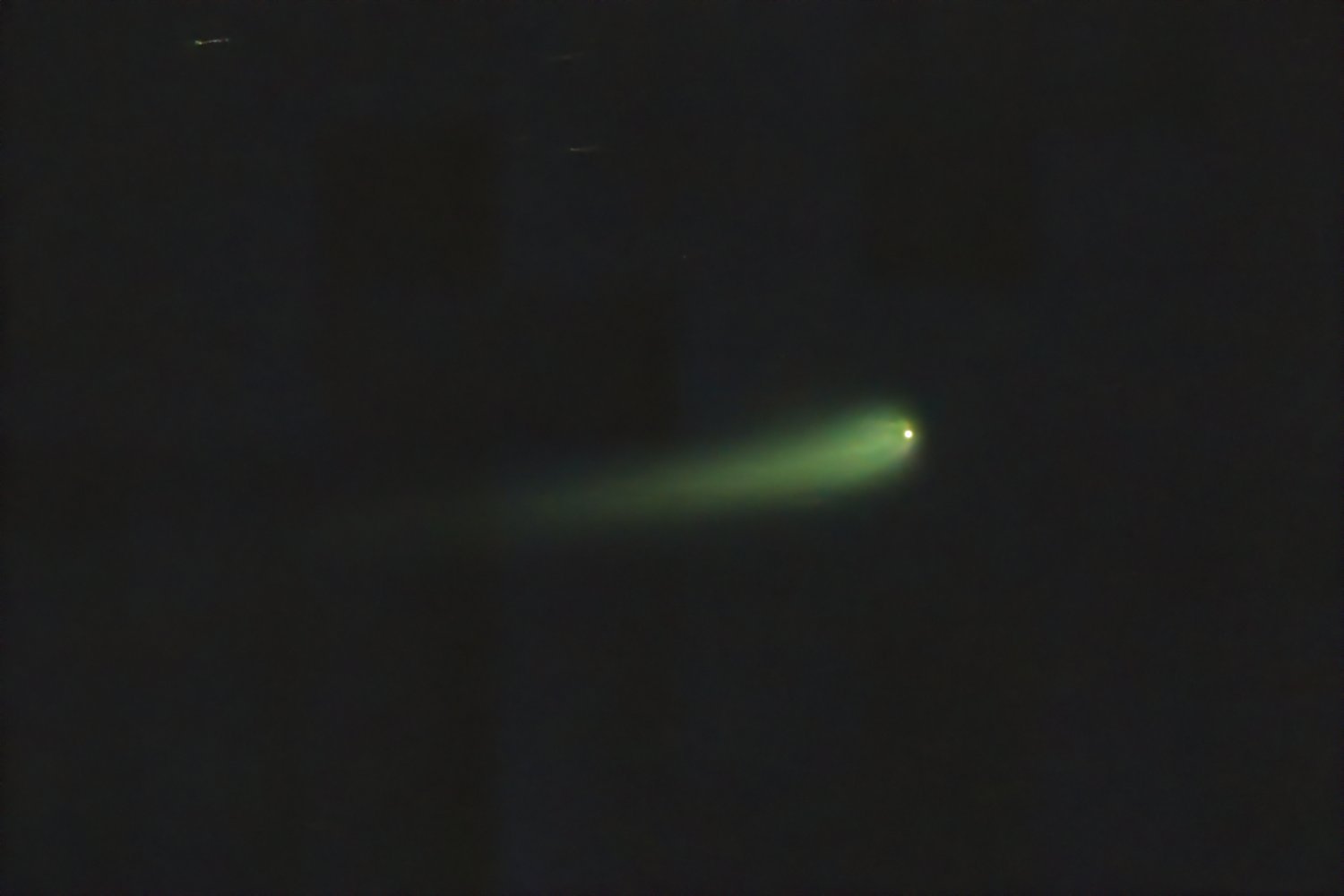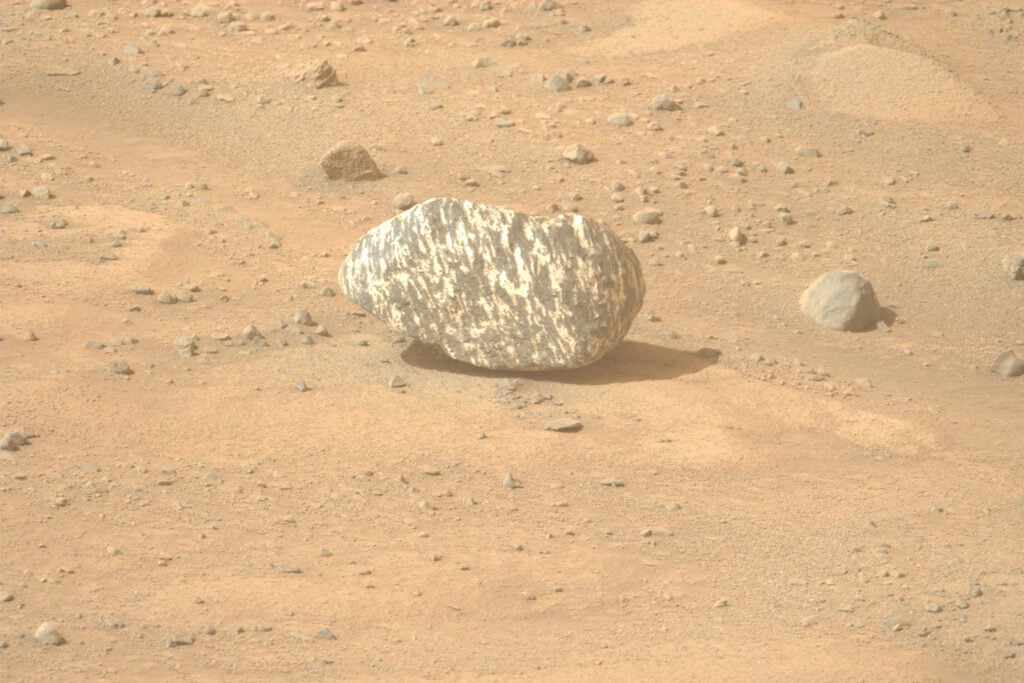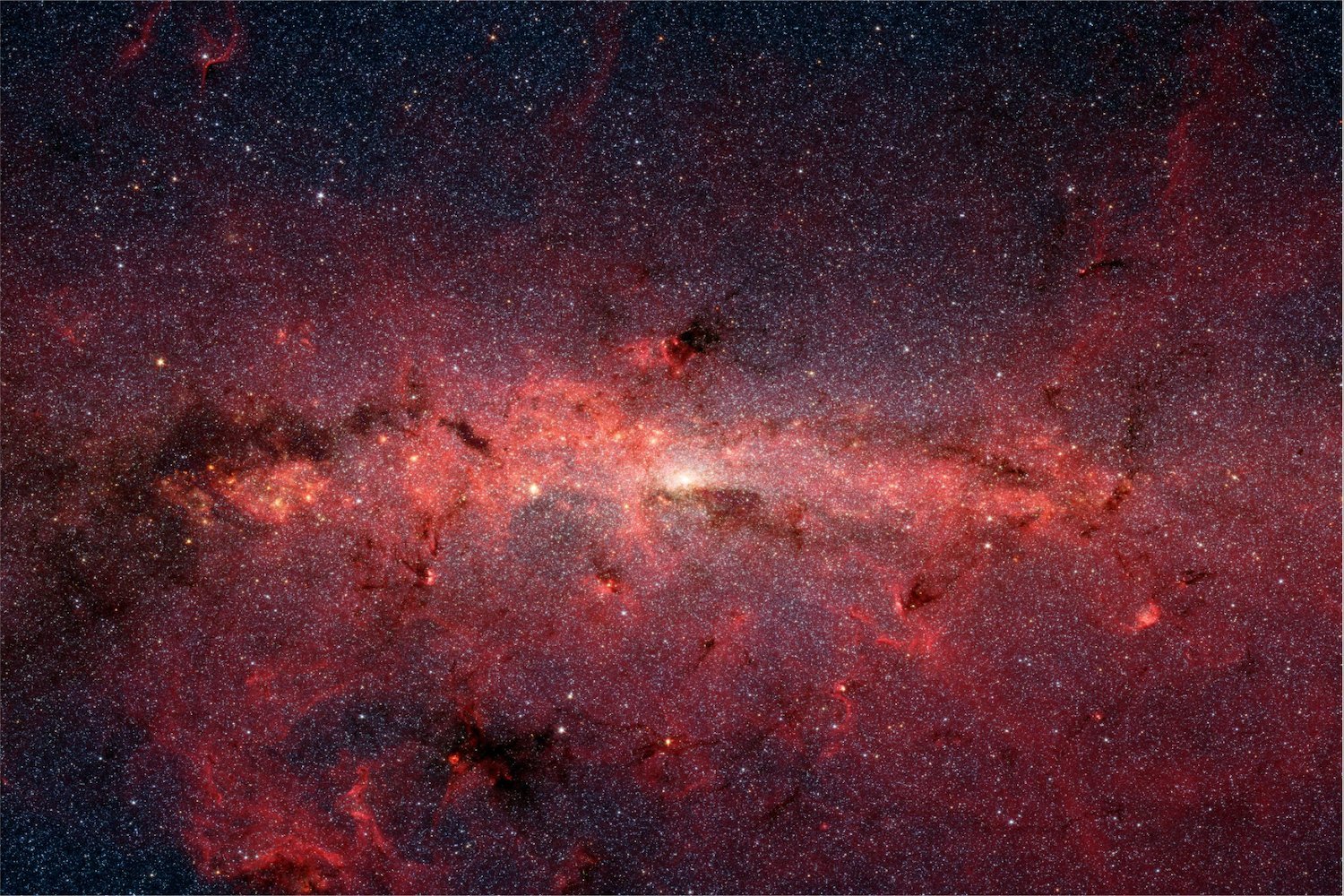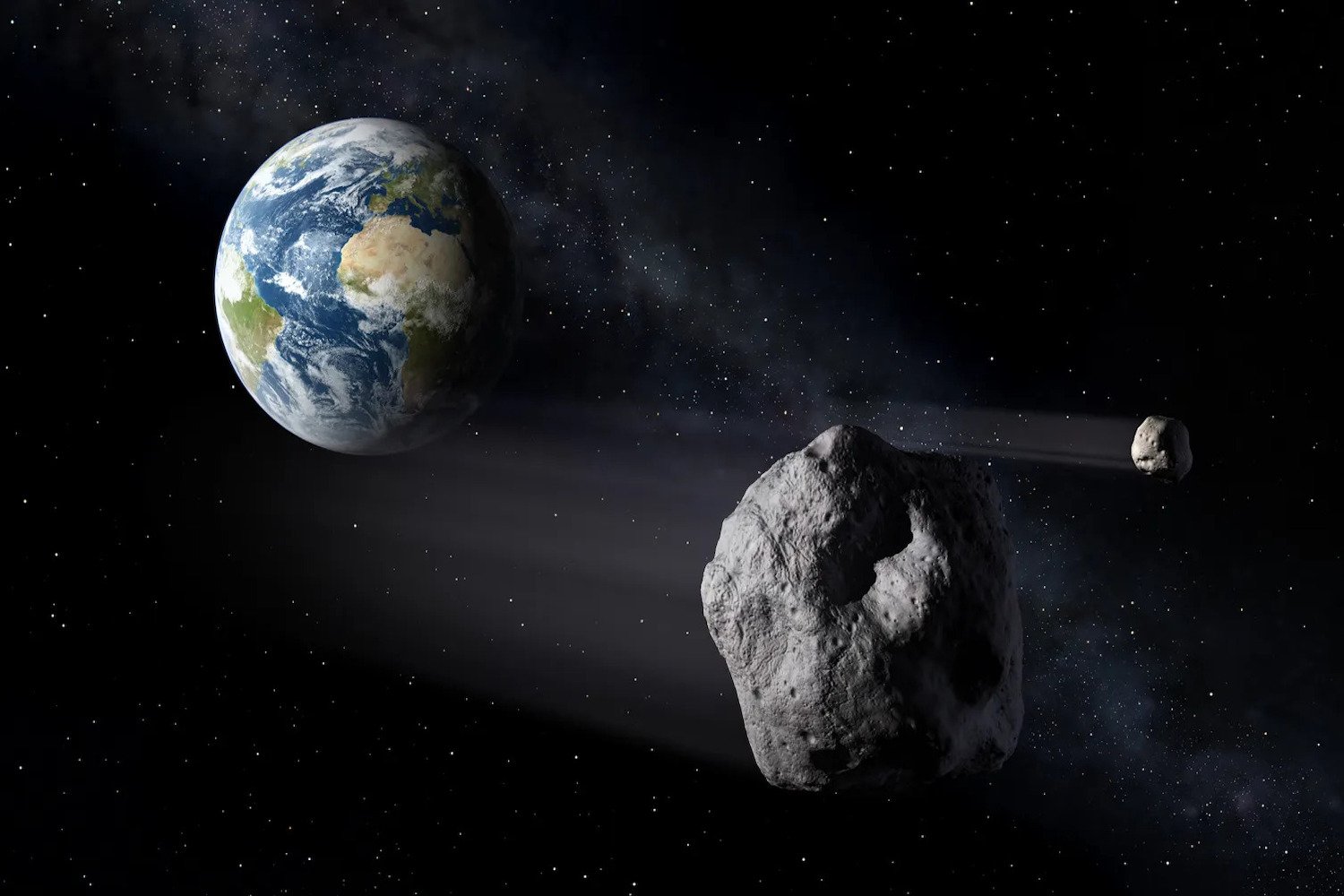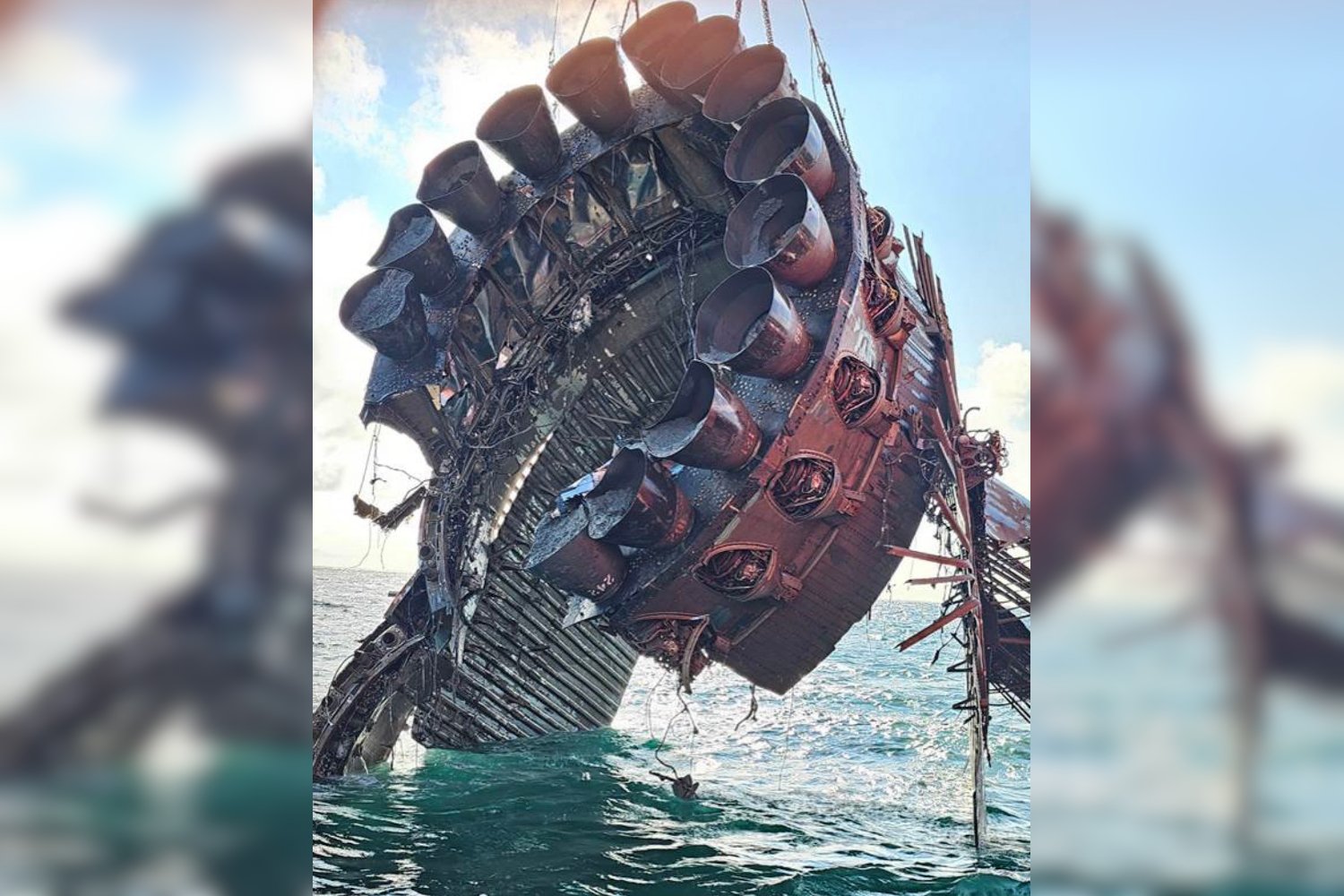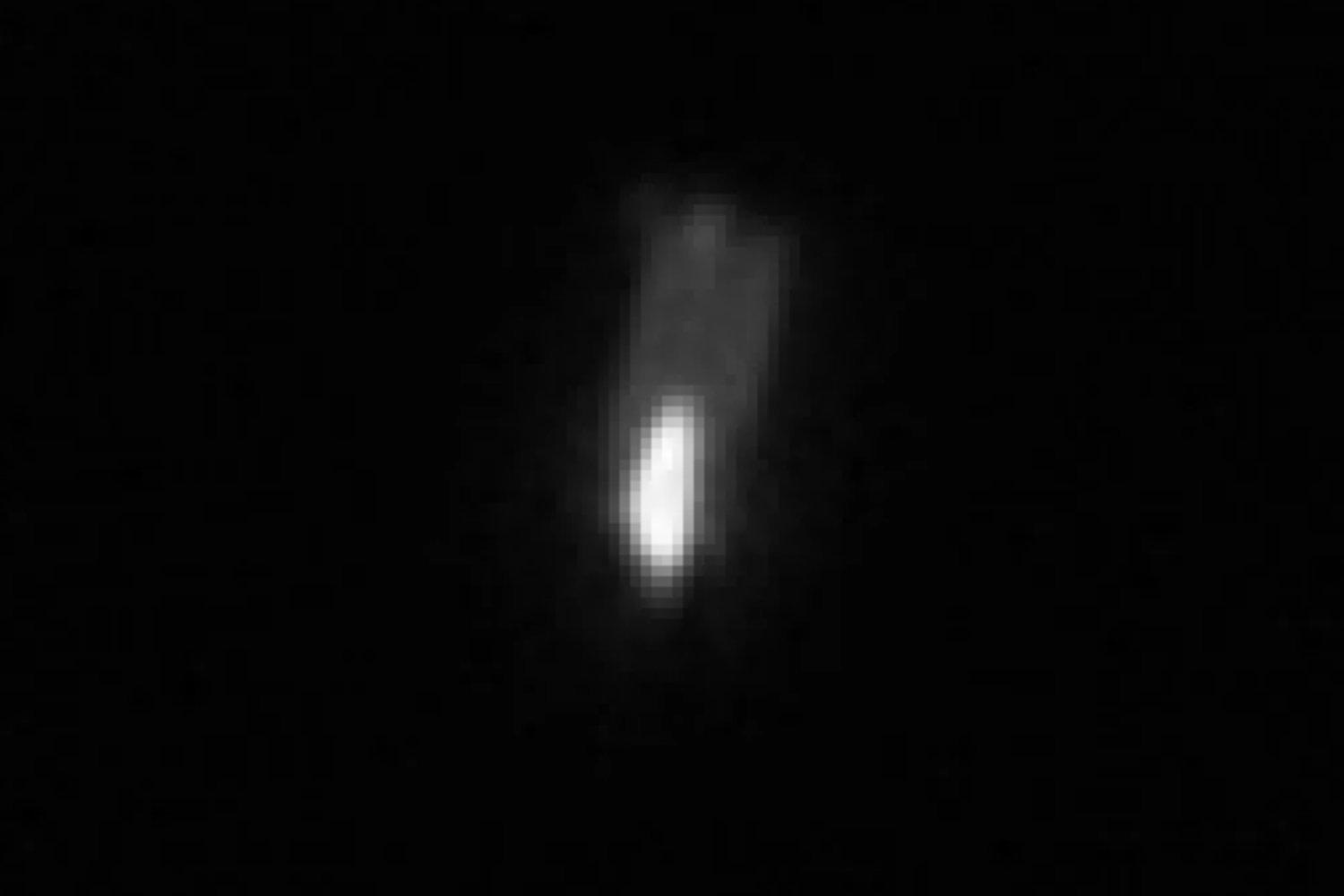Deep Blue Aerospace, a Chinese space startup, recently conducted a high-altitude recovery test flight of its Nebula-1 rocket, aiming for a vertical landing. While the launch initially appeared promising, an anomaly during the final moments resulted in a fiery crash landing at the Ejin Banner Spaceport in Inner Mongolia.
The test flight, captured in a dramatic two-minute video, showcased the Nebula-1 rocket ascending to an altitude of approximately 3 miles (5 kilometers). The footage vividly depicts the rocket’s ascent and subsequent descent, culminating in a sudden engine shutdown just before touchdown. The resulting impact caused the rocket to explode, leaving the company to declare the mission “not completely successful.” Despite the setback, Deep Blue Aerospace highlighted the successful completion of 10 out of 11 major test verification tasks.
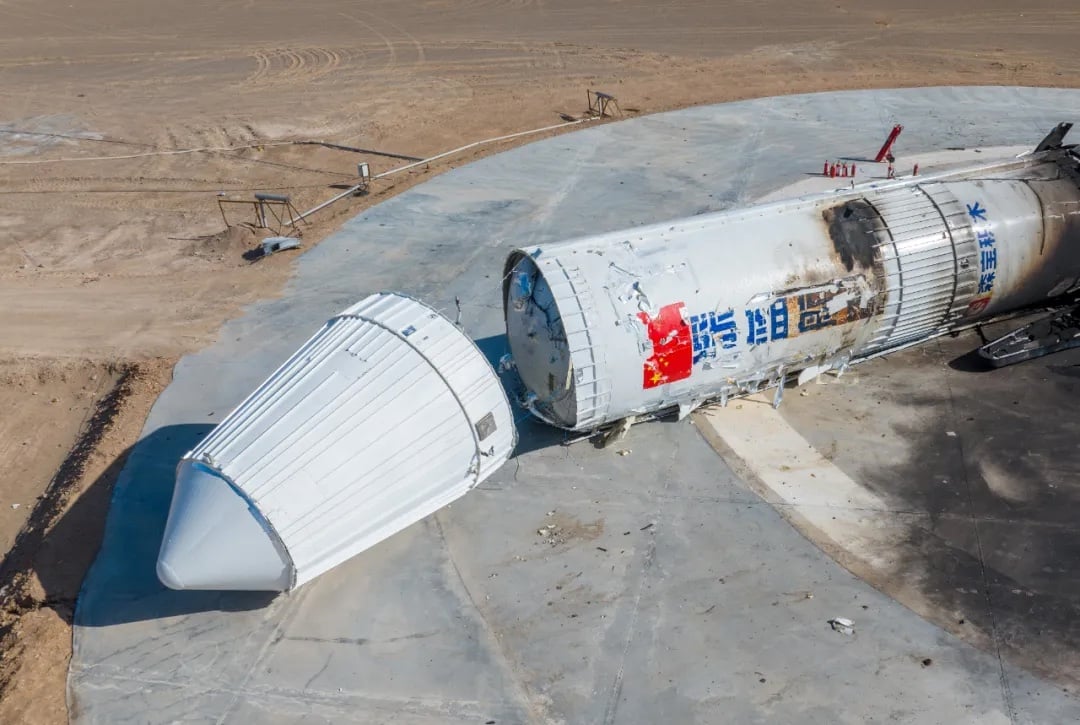 Deep Blue Aerospace Nebula 1The aftermath of the failed landing attempt. Credit: Deep Blue Aerospace
Deep Blue Aerospace Nebula 1The aftermath of the failed landing attempt. Credit: Deep Blue Aerospace
Echoes of SpaceX and a Shift in Chinese Space Strategy
The dramatic footage of the Nebula-1’s fiery demise evokes memories of SpaceX’s early attempts at rocket reusability. Like SpaceX, Deep Blue Aerospace seems to be leveraging these highly visual tests for publicity, a departure from the typically more reserved approach of Chinese space companies. This strategy also underscores a broader shift in China’s space industry, with private companies like Deep Blue Aerospace now playing a more prominent role. This shift is fueled by increased government support for private investment in spaceflight, challenging the traditional dominance of state-owned enterprises.
The Race for Reusable Rockets in China
Deep Blue Aerospace is part of a growing cohort of Chinese rocket startups vying to replicate SpaceX’s success with its reusable Falcon 9 rocket. These companies are aggressively pursuing rocket reusability, a key factor in reducing launch costs and increasing access to space. Earlier this year, another Chinese startup, Landscape, achieved a successful low-altitude test flight of its reusable rocket prototype, landing just a few feet from its target.
Nebula-1: A Closer Look
The Nebula-1 rocket, measuring 11 feet (3.35 meters) wide, is slightly smaller than SpaceX’s 12-foot-diameter Falcon 9. Once fully operational, Nebula-1 is projected to carry payloads of up to 4,400 pounds (2,000 kilograms) to low Earth orbit. A future, larger version is expected to lift payloads of up to 17,000 pounds (8,000 kilograms). These figures, while impressive, remain significantly below the capabilities of SpaceX’s Falcon 9 and Falcon Heavy rockets, which boast payload capacities of 55,000 pounds (25 metric tons) and 141,000 pounds (64 metric tons), respectively.
Looking Ahead
Despite the setback, Deep Blue Aerospace remains undeterred. The company plans to conduct another recovery test flight of the Nebula-1 in November, demonstrating its commitment to advancing reusable rocket technology. This persistent pursuit of innovation highlights the growing competitiveness of the Chinese private space sector. The race to master reusable rocket technology is intensifying, and Deep Blue Aerospace, along with its competitors, are pushing the boundaries of what’s possible in space exploration.
More: Sorry, Elon: Chinese Company Becomes the World’s First to Launch Methane Rocket to Orbit



